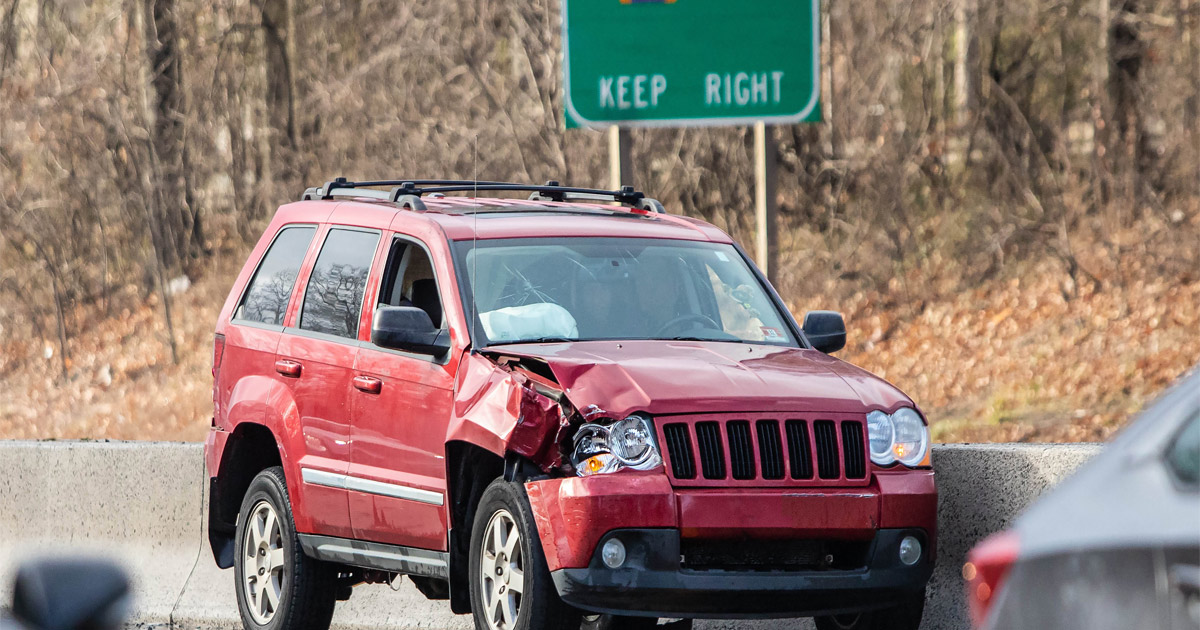Safe driving behaviors are important in all scenarios. Highways in particular are full of potential hazards for drivers, making safe driving even more crucial to avoid car accidents. Wrecks that occur at high speeds on highways or freeways are more likely to cause serious or even fatal injuries.
While they may seem more straightforward than local roads with more traffic signals, highways can present unique risks to drivers, including higher speeds. Highways can have complicated entry and exit points that are difficult to navigate for drivers not familiar with the traffic patterns. The traffic patterns on highways can also change with lanes shifting or merging. Most highways have multiple lanes, meaning more cars on the road at any given time. These are the risks present on normal days. Inclement weather, construction, or other factors can add to these hazards.
Weather conditions can amplify the existing risks of highway driving, as well as create new ones. Rain can make road surfaces slippery and put drivers at risk of losing control. In freezing conditions, black ice can build on road surfaces, which is hard to see and can catch drivers off guard. Fog, rain, and snow can also impact visibility, making it more difficult to see other cars and other hazards as they appear.
It is best to avoid highways during inclement weather, but if this is not possible, drivers can prep their vehicles with snow tires, defrosting windshields, and make sure headlights are working at full capacity. Drivers should reduce their speed in adverse weather conditions to make sure that they have enough time to react to hazards.
How Can I Stay Safe on a Highway?
Speed is a major factor in highway accidents. Drivers need to exercise good judgment when adjusting their speed on highways, paying close attention to both posted speed limits and the flow of traffic. Speed can vary by lane, with traffic in the right lane traveling slowest, and in the left lane traveling fastest. Cruise control can be a helpful tool for maintaining a safe speed, but drivers should always be on the lookout for potential hazards that will require them to change their speed, including looking ahead for brake lights that signal slowing traffic.
Drivers should travel in the middle lane as much as possible. The right lane should have plenty of room for vehicles entering and exiting the freeway, and the left lane should be for passing only. If drivers need to change lanes, they should make sure that they have enough space and use their turn signals. Changing lanes too suddenly can catch other drivers off guard, and if drivers have not checked their blind spots, there could be vehicles approaching quickly behind them, risking collisions. If drivers need to pass someone, they should only do so in the left and make sure that they are signaling properly. A driver should avoid lingering in another vehicle’s blind spot in case that driver decides to change lanes.
Entering and exiting a highway must be done properly to avoid an accident. Entrance ramps are designed to give drivers enough time to safely get up to the proper speed and merge into existing traffic. Drivers should gradually speed up to match the flow of traffic then signal their intent to merge into the right lane. They should make sure that they have enough space by checking mirrors and looking over their shoulders.
Tailgating is especially dangerous on highways. When traveling at high speeds, drivers may not be able to stop in time to prevent crashes if someone stops or slows down suddenly in front of them. Drivers should maintain four to six seconds of stopping distance in between them and cars in front of them. This will allow them and other drivers to maneuver safely and avoid rear-end collisions.
Drivers should also be cautious when using the shoulder and only stop if it is an emergency. If they are in distress, it is better to exit freeways entirely as long as they can do so safely. If not, they should make their way safely to the shoulder and put as much distance as possible between their cars and moving traffic. Drivers on shoulders should have their hazard lights on to alert other drivers of their presence.
Impaired Driving on Highways
Drivers who are impaired should not be on any road, let alone highways. Drunk driving should be avoided at all costs. If a driver plans to drink on a night out, he or she should plan for a ride ahead of time. Drivers will also have difficulty focusing on the road if they are intoxicated. Intoxicated drivers may have blurred vision and slower reflexes as well. Some prescriptions may cause drivers to become impaired, so they should make sure that they know how their medications will affect them before driving. Driving under the influence is a common cause of auto accidents.
Dangers of Drowsy Driving
Drowsy drivers run the risk of falling asleep at the wheel on long stretches of road and can veer into other lanes or hit medians, causing crashes. Drowsy driving is a factor in at least 100,000 every year, so drivers need to make sure that they are properly rested before driving.
What Causes Distracted Driving Accidents?
Distracted driving can be just as dangerous. Drivers on long journeys may try to save time by eating, which takes their hands off the wheel and their eyes off the road. Smart phones can also be distracting, even if drivers use hands-free devices for talking and texting. Drivers may also take their eyes off the road to use navigation or audio systems. All of these distractions can cause drivers to lose focus, which makes it more difficult to react to hazards that appear.
How Can Young Drivers Stay Safe While Driving?
Young drivers may find highways particularly challenging. With so much going on around them, drivers on highways need to keep wide views and take in a lot of information at once. They also have to be able to read traffic situations and make constant adjustments. Drivers who are inexperienced may not be able to keep up, putting themselves and others at risk. Younger drivers are factors in many highway accidents. Defensive driving classes can be helpful resources for inexperienced drivers who want to learn more about staying safe on highways.
Drivers who want to gain more experience on highways should start off slow and avoid peak transit times so that they can get their bearings with fewer drivers around. They should stick to the right lane until they get more comfortable with higher speeds. Drivers who are 20 years old or younger are at high risk for distracted driving accidents, so it is important that they avoid distractions and keep their eyes on the road, especially when driving on a highway. Building good habits will help young drivers successfully travel on highways, even in situations where other drivers are not behaving safely. Drivers must be able to react quickly and keep a level head if other drivers on highways are acting recklessly.
When Should I Hire a Lawyer?
After a car accident occurs, it is important that the car accident victim seeks medical attention right away. Also, when possible, he or she should seek legal advice. A personal injury claim may be beneficial, and a lawyer will be necessary for this process. Car accidents can be costly, and an experienced lawyer will help the victim fight for the compensation that he or she deserves.
Virginia Beach Car Accident Lawyers Advocate for Victims of Highway Car Accidents
If you were recently injured in a car accident that happened on a highway, call one of our Virginia Beach car accident lawyers today. At East Coast Trial Lawyers, we have the knowledge and resources to get our clients the maximum amount of compensation available. Contact us online or call us at 757-352-2237 for a free consultation. Located in Virginia Beach, Virginia, we help accident victims throughout Chesapeake, Eastern Shores, Hampton, Newport News, Norfolk, Portsmouth, and Suffolk, Virginia, as well as North Carolina and nationwide.


